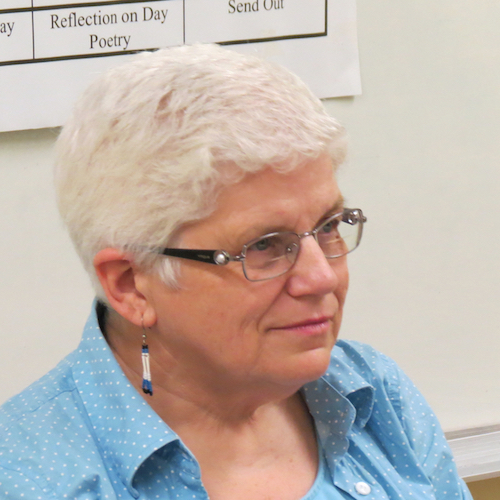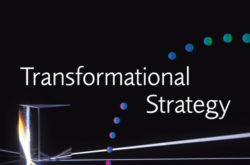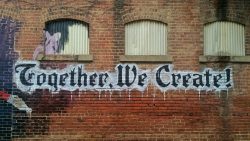A foundational value of group process facilitation is inclusion of the voices of all people who have a stake in the results. The IAF ethics and values statement says:
“We strive to engender an environment of respect and safety where all participants trust that they can speak freely and where individual boundaries are honoured. We use our skills, knowledge, tools, and wisdom to elicit and honour the perspectives of all.
We seek to have all relevant stakeholders represented and involved. We promote equitable relationships among the participants and facilitator and ensure that all participants have an opportunity to examine and share their thoughts and feelings. We use a variety of methods to enable the group to access the natural gifts, talents and life experiences of each member. We work in ways that honour the wholeness and self-expression of others, designing sessions that respect different styles of interaction. We understand that any action we take is an intervention that may affect the process.”
Values, however powerful, can be abstract, though. What really counts is how we act on them.
It is easy to say that we include everyone, that we listen to every voice equally, and that we guide groups to do the same. However, there are many blocks that impede this vision.
Blocks to Inclusion of Diversity
One block is the client’s bias – when they decide who should participate in an event, they may not see all the people who have a stake in the results, or write off certain viewpoints.
For example:
• Someone whose English is difficult to understand may be written off as not having useful insight.
• Someone in a lower position may not be included, even though they will be affected by the result of the event or have an important perspective that needs to be heard. “This meeting is for leaders”.
• Or the perspectives of someone who is Black or Indigenous or a person of colour may be dismissed either consciously or unconsciously as less valuable or problematic.
When the facilitator is preparing for an event, it is important to probe who the participants will be and work with the client to have the widest possible spectrum of participation.
Another block is the facilitator’s own bias. We all have unconscious biases. It is challenging to become conscious of our own bias. This is related to the theory of Image Change. We all operate and behave in certain ways out of images of the world around us, which are shaped by messages in our environment, both direct and indirect. We are frequently not aware of the images that affect our behaviour, unless we reflect on them. Images can change. New messages can have an impact on our images. When our images change, our behaviour changes. Here is a story of uncovering and unconscious image and discovering where the messages came from that shaped that image.
Messages come from many sources in the environment around us, from education and popular culture to the faces around us in the workplace and who is allowed to have opinions or dominate in a group. In the last few months, we have become more aware of these messages around us. This awareness allows us to examine our limiting and oppressive images and biases.
What do we lose when we suppress diversity and inclusion, consciously or unconsciously?
• We lose life experiences that bring new wisdom to the table and can influence better products or results.
• We lose people speaking for themselves, which would allow the group to hear real and unfiltered needs and creativity.
• We risk rage and rebellion as a human response to being silenced and suppressed.
• We lose solutions that work for a greater number of people (and create a bigger market for our products).
• We lose new, creative perspectives that energize our work and lives.
• We lose the joy of learning from others.
What We Can Do as Facilitators
So what are some things we can do as facilitators to promote diversity, inclusion, and understanding?
• We can take a proactive stance when we work with the client to make sure that everyone is represented in the room. This may include difficult but important questions of the client.
• We can use the Working Assumptions to set the context for group work, talking through what that means in the group and modeling it as we work.
• We can guide conversations to help ourselves and others examine assumptions and become aware of bias. (See accompanying article).
• We can step out of the “neutral” facilitator role when necessary to challenge participants’ assumptions and worldviews that perpetuate racism and oppression. Barb MacKay has a good example of when and how to do this in an article on her blog.
• We can promote culturally respectful communication, particularly with Indigenous people. This article results from a workshop done with indigenous and non-indigenous facilitators at an IAF conference.
I found this article by a group called “Worldview Intelligence” to be very helpful in understanding image change and how to create it in ourselves and others. The article begins by focusing on the current political situation, but its underlying understanding of behaviour change is in alignment with image change
When we address the blocks to inclusion, not only are the results of the group’s work more wise and valuable, but we and the group can experience the joy of expanding our sense of community.







